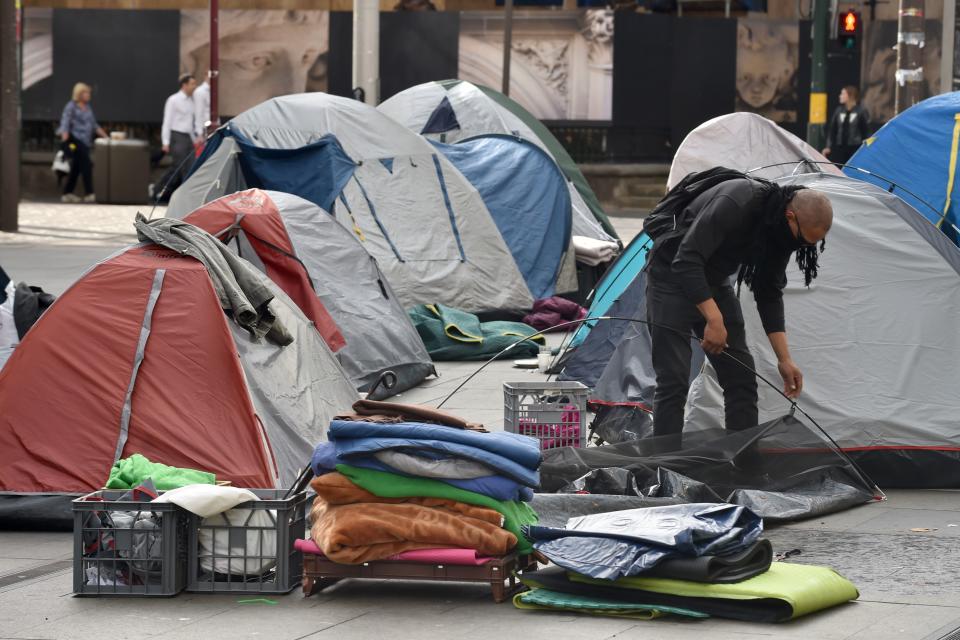Evictions should be illegal: Housing expert

Evictions should be “completely prohibited” if they make people homeless, the United Nations Special Rapporteur on the Right to Adequate Housing has said during a visit to New Zealand.
Related story: What will it take to fix homelessness in Australia?
Related story: The problem with Luke Howarth’s ‘positive spin on homelessness’
Commenting on the country’s housing crisis, Special Rapporteur Leilani Farha said the crisis goes beyond housing and extends into a “human rights crisis”, as she announced the results of her visit, the New Zealand Herald reports.
"At the root of the crisis is a speculative housing market that has been supported by successive governments, who have promoted homeownership as an investment, while until recently discontinuing the provision of social housing and providing inadequate tenant protection,” Farha said.
"So you have to say, 'Okay, you want to play in residential real estate? You have to realise it's a human right.'"
Māori and Pasifika people, and those who are already homeless, are particularly affected, but the worst-affected are people with disabilities.

"I have heard stories of people in wheelchairs with no access to bathrooms. I met a man who said he needed help just to get in and out of his house."
She said evictions from primary residences should be considered only after all other alternatives have been explored by all parties involved, and if evictions cannot be avoided, “alternative affordable housing should be provided as proximate as possible to the place of residence”.
Australia’s housing crisis

Her words come as Australia grapples with a housing crisis of its own: Australian home values are around seven times the size of the average salary.
And as Australia’s wage growth remains flat, the situation is growing even more dire for those attempting to enter - or remain in - the country’s accelerating property market.
And year after year, Australia’s capital city housing markets have been branded “severely unaffordable”. Over 2017-18, more than 15 per cent spent more than 30 per cent of their income on housing.
And around 116,000 Australians were estimated to be homeless in 2016, up from 102,439 in 2011. In fact, between 2011 and 2018, homelessness increased a huge 14 per cent as housing prices also surged.
Productivity Commission figures released in January also revealed an increase in the number of homeless people not being able to access refuge.
The report found 33.8 per cent of Australians needing access over 2018-19 were not getting them.
Homelessness advocacy group Everybody’s Home said a 30 per cent increase to Commonwealth Rent Assistance and major investment in housing services is required to reverse “decades of underinvestment in social housing by successive governments”.
“Even with rent assistance many Australians are having to make the really tough choice between paying for basics like food or medication or paying the rent,” spokesperson Kate Colvin said.
“At the same time, we’re seeing a drop in the proportion of households living in public or community housing because the housing just isn’t there for people who desperately need it.”
The government earlier this month launched an inquiry into homelessness.
However, advocates and support services are agreed: the best way to boost housing affordability and stem the flow of Australians tumbling into homelessness is to increase the supply of affordable renting housing.
This means making sure the amount of social housing grows at the same rate as the population. However, that hasn’t happened for 20 years, Professor Hal Pawson from the University of New South Wales City Futures Research Centre has said.
Investing in social housing fell 8 per cent in the four years to 2016-17, with the national social housing stocking growing at only half the rate needed to keep up with population growth.
Make your money work with Yahoo Finance’s daily newsletter. Sign up here and stay on top of the latest money, news and tech news.
Follow Yahoo Finance Australia on Facebook, Twitter, Instagram and LinkedIn.



